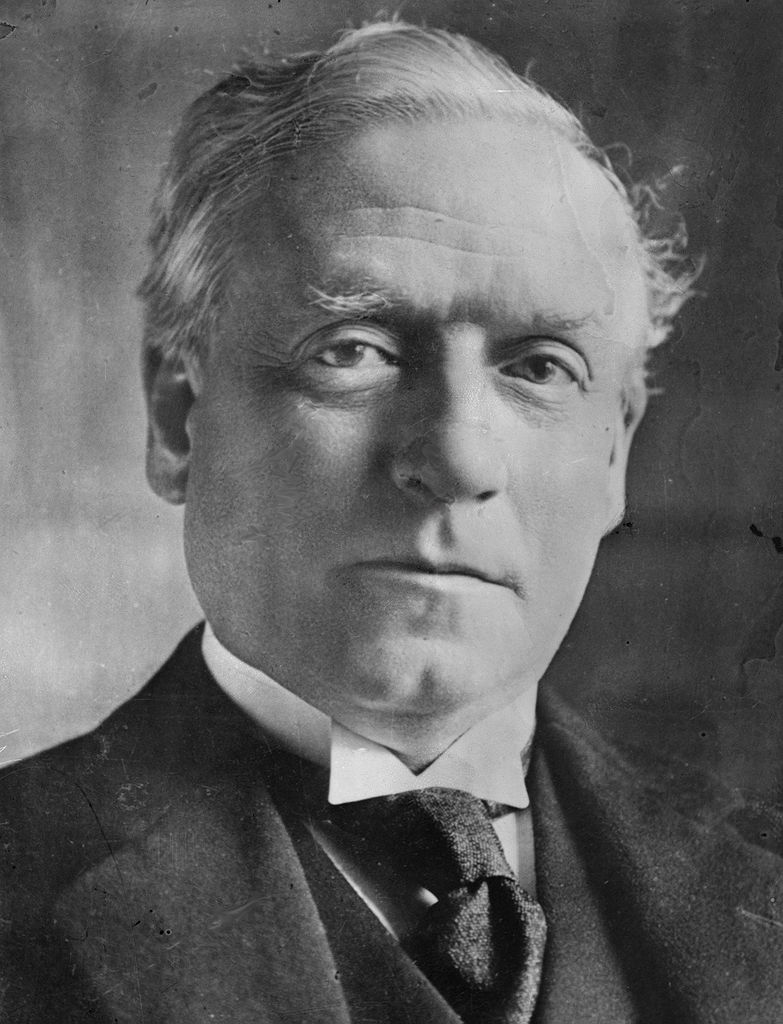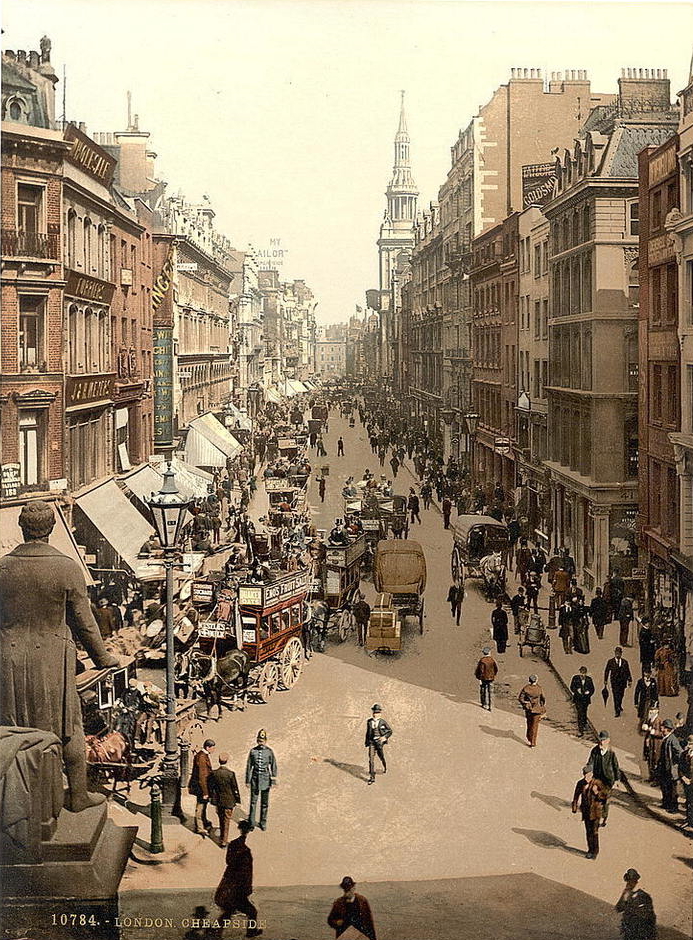12. GLORY

THE LAST DAYS OF THE GILDED AGE
GREAT BRITAIN

THE LAST DAYS OF THE GILDED AGE
GREAT BRITAIN
 The close of the Victorian Age
The close of the Victorian Age
 George V ... and Liberal reform in Britain
George V ... and Liberal reform in Britain
 Great Britain ... around the year 1900
Great Britain ... around the year 1900
The textual material on page below is drawn directly from my work
A Moral History of Western Society © 2024, Volume Two, pages 43-45.
THE CLOSE OF THE VICTORIAN AGE |
| Under
Victoria, Great Britain had
thrived as something of a no-nonsense society, because the inspirer of
the Victorian age was herself something of that kind of woman: sober,
stiff, and always proper. Under Victoria, Britain had chosen to
"go it alone," standing off from continental affairs while the nation
focused on its particular world of heavy industry, commerce and finance
... in which it was the world’s unchallenged master. But towards
the end of Victoria's long reign other countries were quickly moving in
a similar direction ... and seemed content to do so as if they were in
purposeful competition with Britain. Diplomatically, Britain was
finding itself isolated from its European partners. Domestically Britain was finding it increasingly difficult to maintain its position of economic dominance in the world. At mid-century Britain (in part also because of the Irish Question) had been so confident of its economic position that it ended the Corn Laws that had protected British agriculture from foreign competition ... the only country to make such a move into "free trade." At that time Britain was essentially self-sustaining in food production. But as the decades passed Britain found itself less and less able to feed its population. Cheaper grain and meat products had flooded the British food market ... bankrupting many British farmers, who were forced to move to the rapidly expanding industrial cities in order to find work ... driving down workers' wages there in the process. Unemployment was increasing across the country ... and by the end of the century the nation’s economy was suffering great strain. At that point America had greatly overtaken Britain as an industrial nation ... and Germany was moving rapidly in a similar direction. Even France, though far behind Britain in total industrial output, was showing a strong rate of industrial growth. |

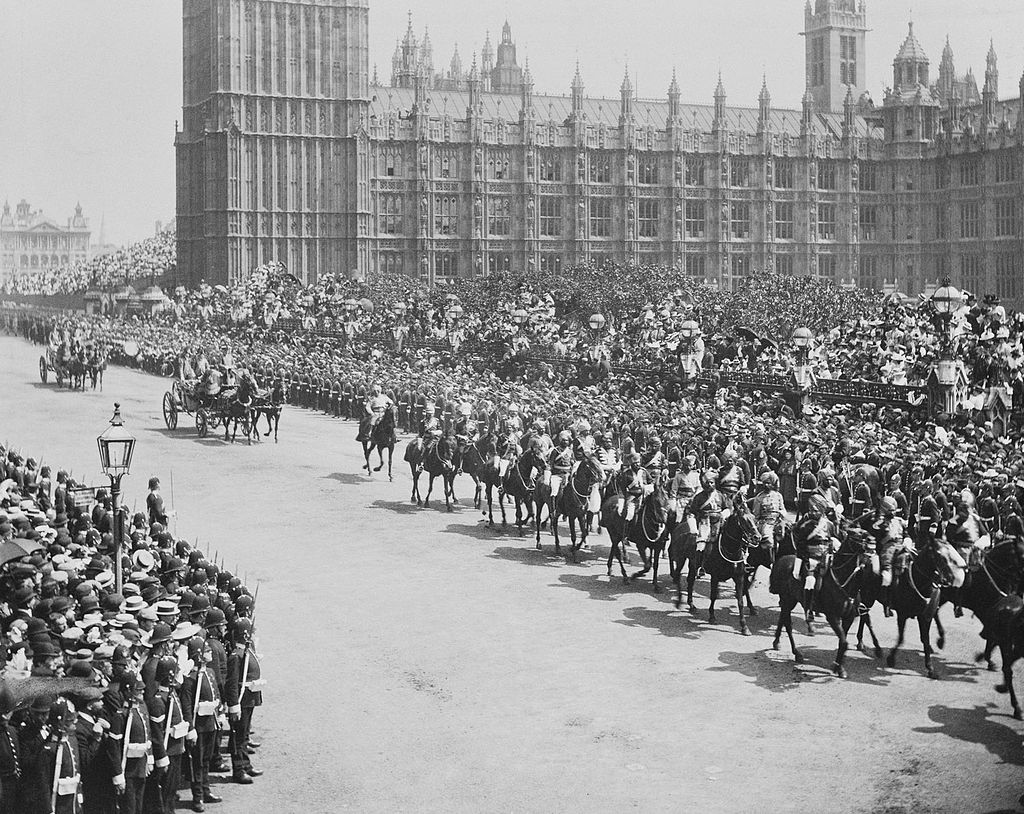
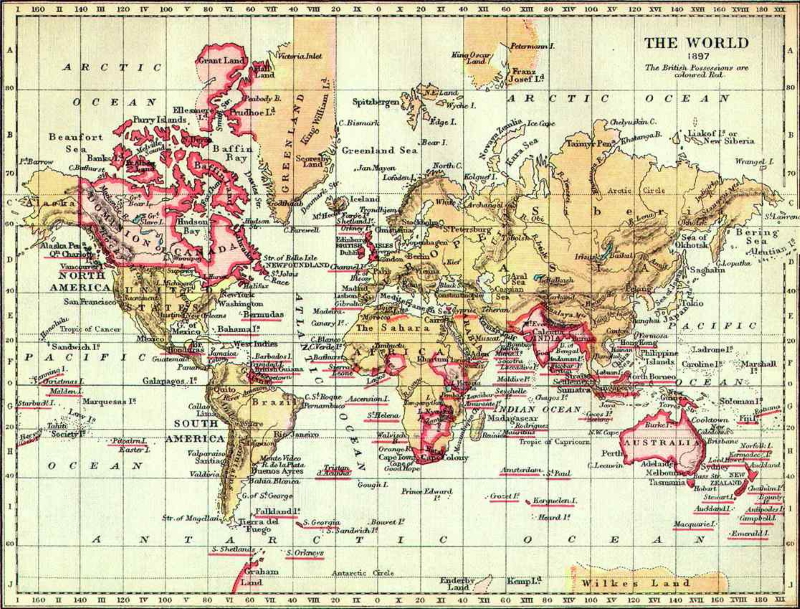
The British Empire - 1897
EDWARD VII (1901-1910) |
| When Edward took the throne upon his mother’s death, he was already 60 years old. He had busied himself while waiting for the throne in a rather wild life ... wild that is in Victorian terms. Actually he had traveled much and thus knew far more about the world and its varied ways than did the average British politician. He also had a much warmer personality than his mother ... and soon found that he was able to cultivate considerable affection for himself and his rule that was largely lacking during the latter part of the Victorian age. The British came quickly to be fond of their king. But so did the French and other Europeans. Consequently, he ended the splendid isolation of Victorian Britain and engaged his nation more directly in the doings of the rest of European society, culturally as well as politically. Soon close (and ultimately strategic) relations developed with France and Russia. Only in his dealings with his nephew Wilhelm did Edward find the going a bit rough. |
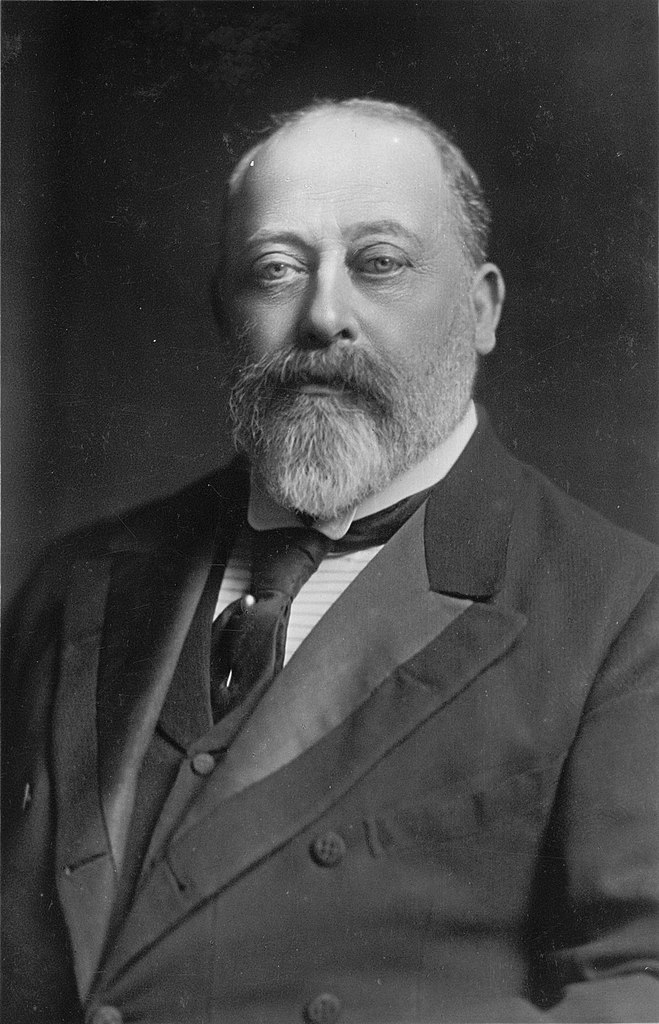
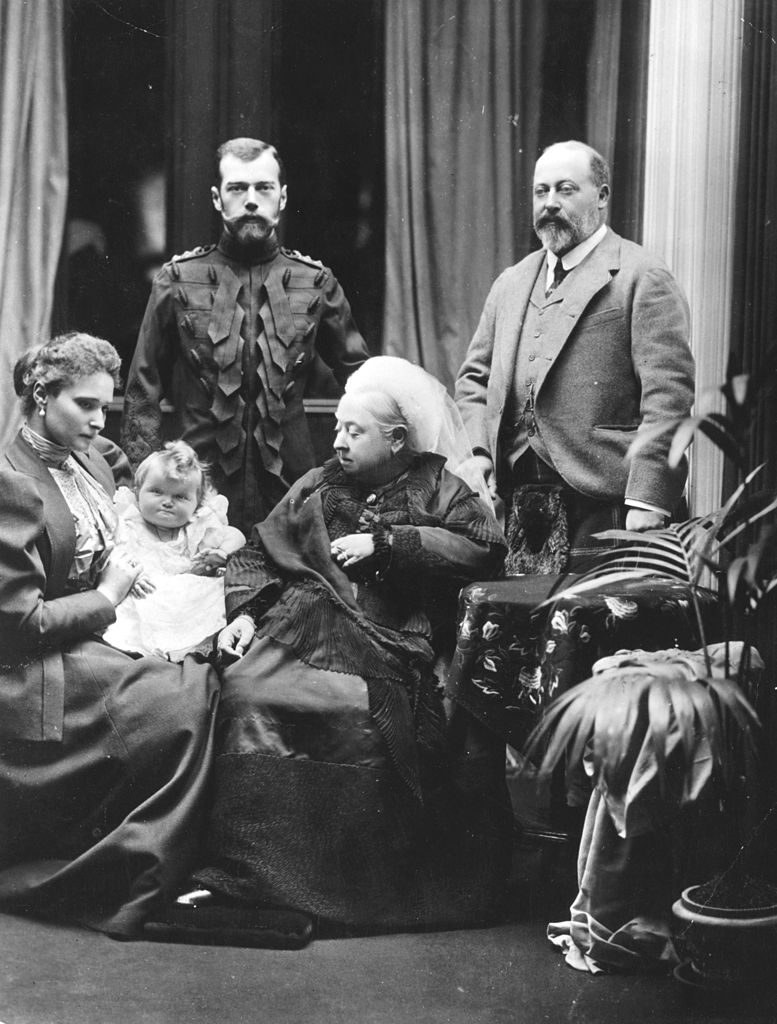
1896 - Victoria with her son Albert Edward (future Edward VII)
and her grandson Tsar Nicholas II and his wife Alexandra (and their baby)
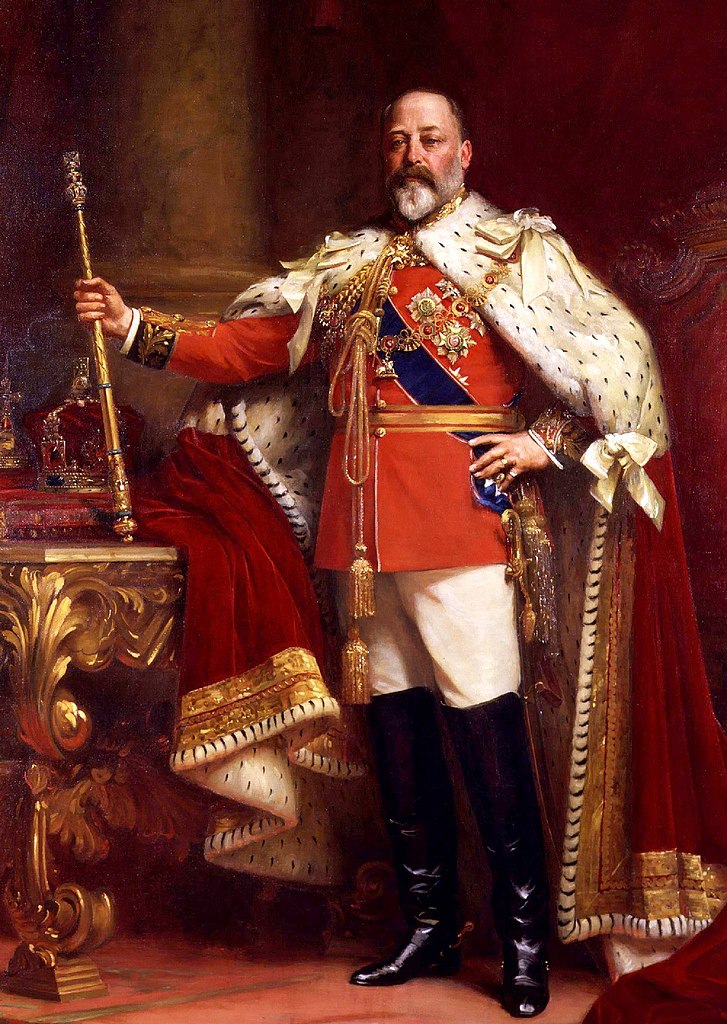
Edward’s son George took
the throne at age 45 when his father died in 1910. He was a bit
of a reversion back to Victorian sobriety. Nonetheless he was
dutiful in his royal office ... and supportive of the cabinet ministers
that at this point effectively ran the nation.
Britain had been on a strong democratization campaign led by the
Liberal Party, which dominated the House of Commons. In the first
ten years of the twentieth century (but especially after the 1906
elections) the Liberals pushed through a number of bills designed to
improve the conditions of the British working class, both workers and
families: a legal minimum wage, accident insurance, injury
compensation, old age pensions, workplace hours and conditions, slum
clearance and housing renewal, public education, etc.
Ironically, much as in Germany and France, the harder the Liberals
worked to improve life for the workers, the more the socialist leaders
of the British working class seemed to draw political support that
enabled them to increase the numbers of the members of the Labour Party
sitting in the House of Commons. For instance in the general
elections of 1906, the Liberals won 366 seats and the
Conservatives (still referred to as "Tories") were reduced in
number to 157 seats. But the new Labour Party was able to take 51
seats.
But at the time the real challenge to the Liberals was considered to be
the strong Conservative Party loyalties of Britain’s upper house, the
House of Lords. Passage of the Liberal reform bills had been
bitterly fought by the Lords ... and won by the Liberals over this Tory
opposition only through much struggle. From the Liberal point of
view, the House of Lords needed deep reforming ... especially the power
of the Lords to veto or mutilate legislation passed in the House of
Commons.
Finally in 1911 ... after the threat to the House of Lords was issued
that if they continued their obstructionism the Liberals would simply
direct the King to create a large number of new Lords to ensure passage
of their bills ... the Lords backed down and accepted a new law
restricting greatly their ability to block the work of the House of
Commons: failure of the Lords to pass Commons’ financial bills would
automatically make them law after one month; they could slow up but not
stop Commons' other legislation. In short governmental power was
now given over fully to the people and their representatives in the
House of Commons.
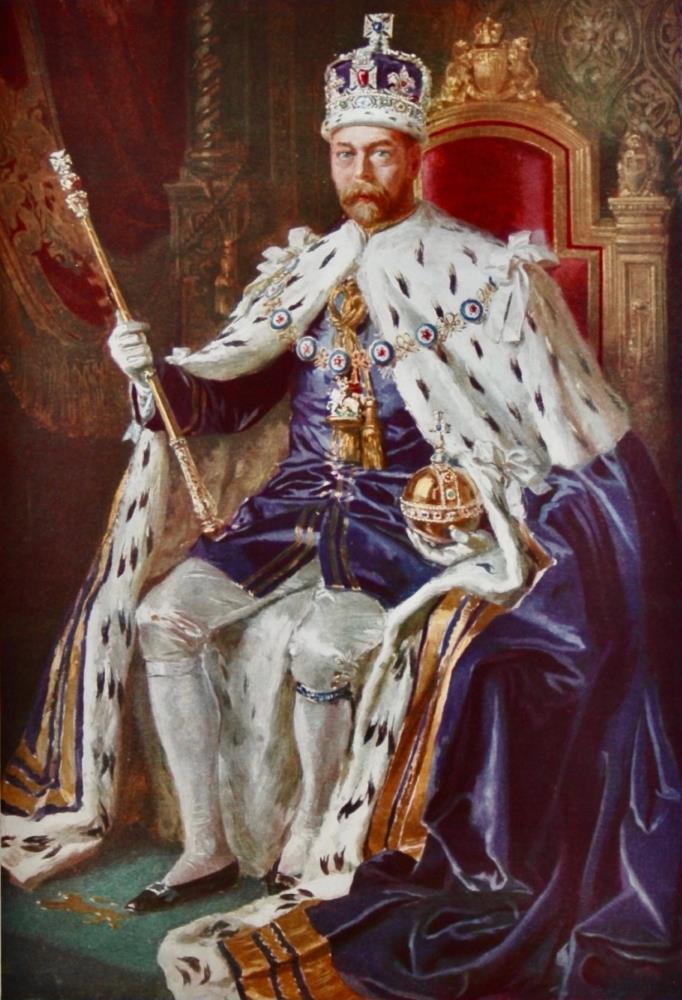
Royal Collection
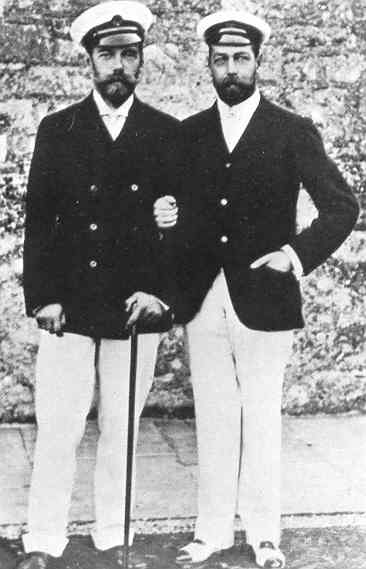
British King George V (left) / Russian Emperor (Tsar) Nicholas II (right) in both photos above and below
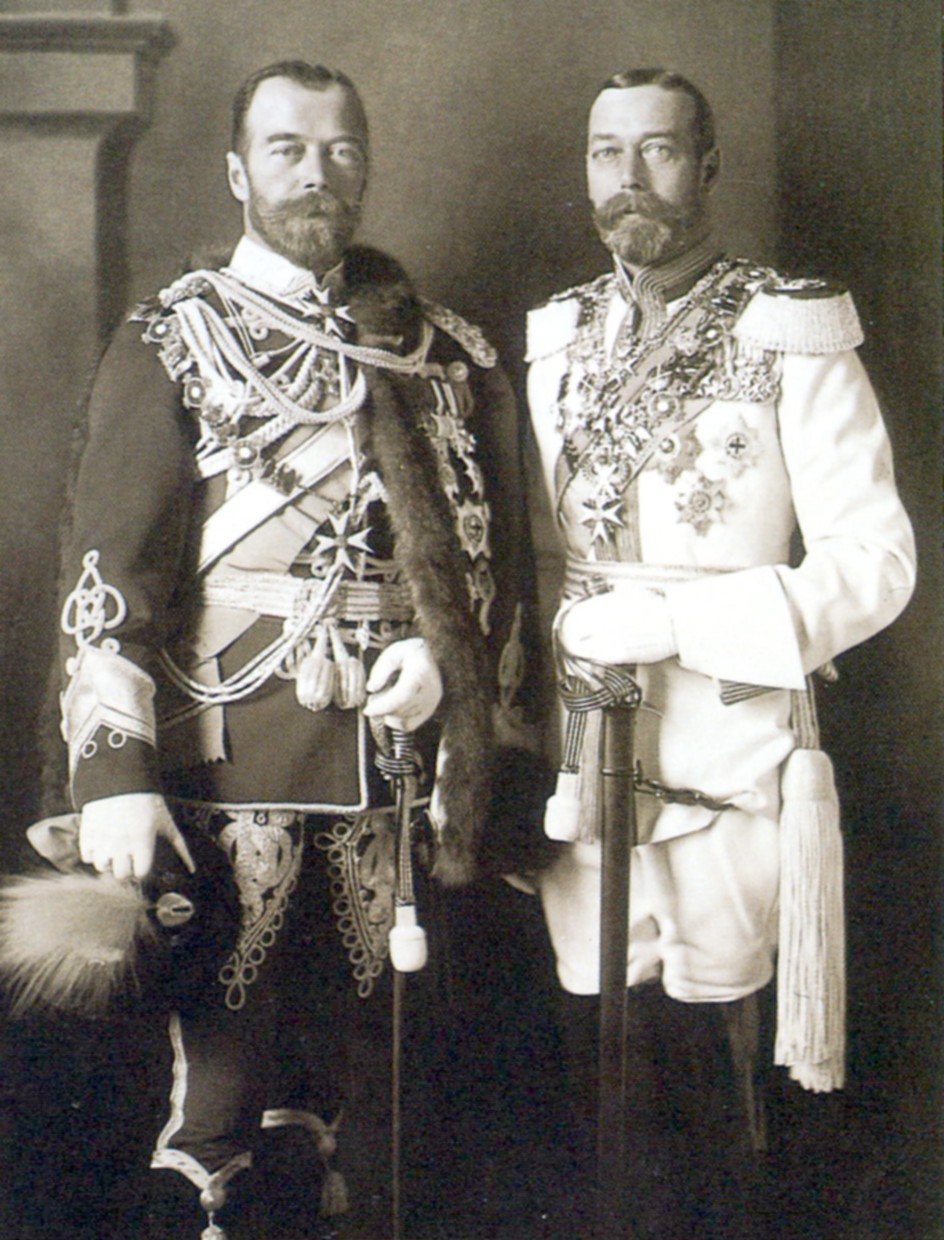
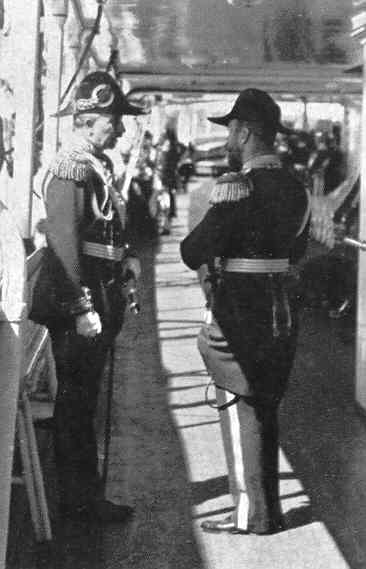
King George V with Kaiser Wilhelm of Germany
Wilhelm was also a cousin (another of Victoria's grandsons) ... though he was less "family" in attitude
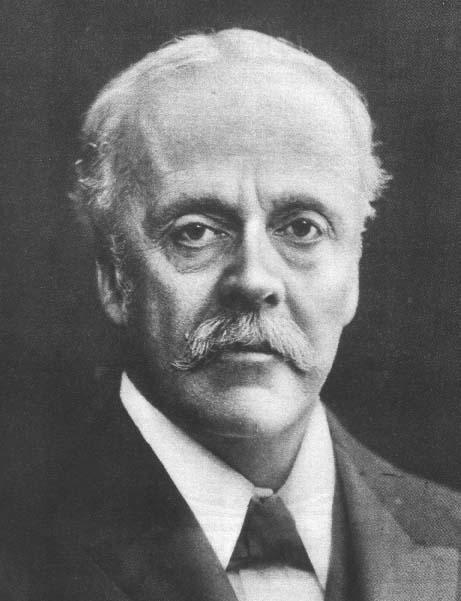
(Leader of the Conservative Opposition – 1906-1911)
GREAT BRITAIN ... AROUND THE YEAR 1900 |
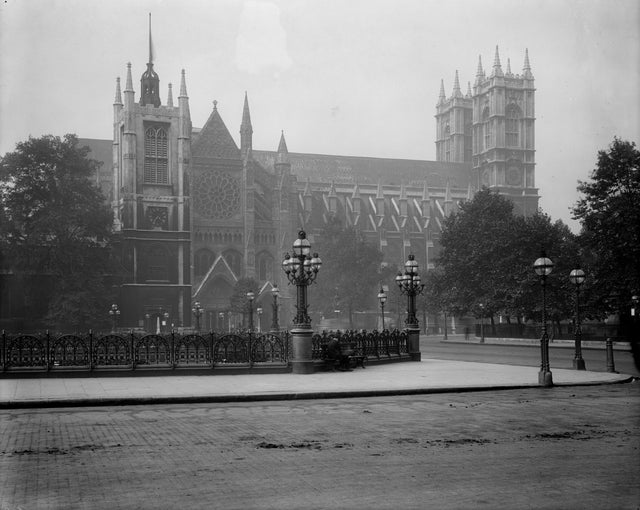
Westminster Abbey - England's "national" church in London
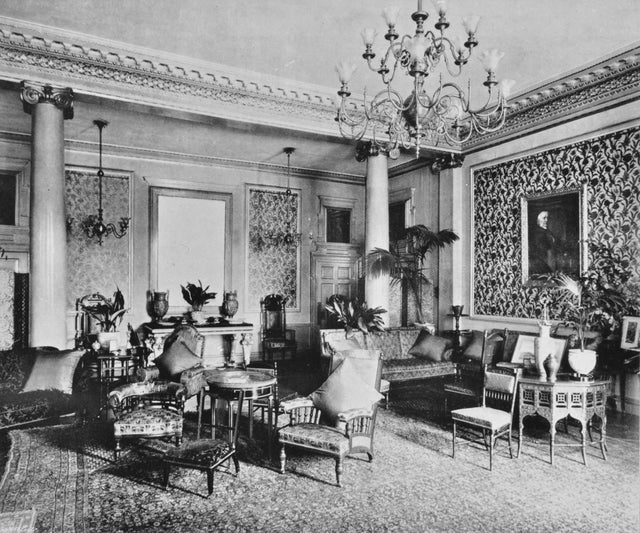
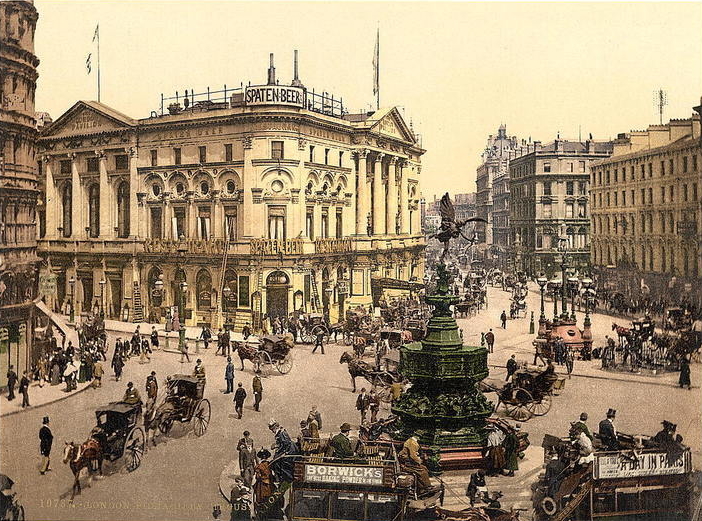
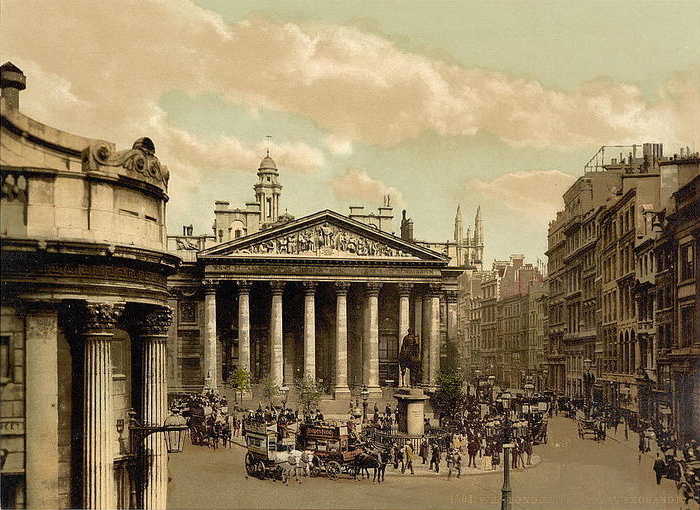
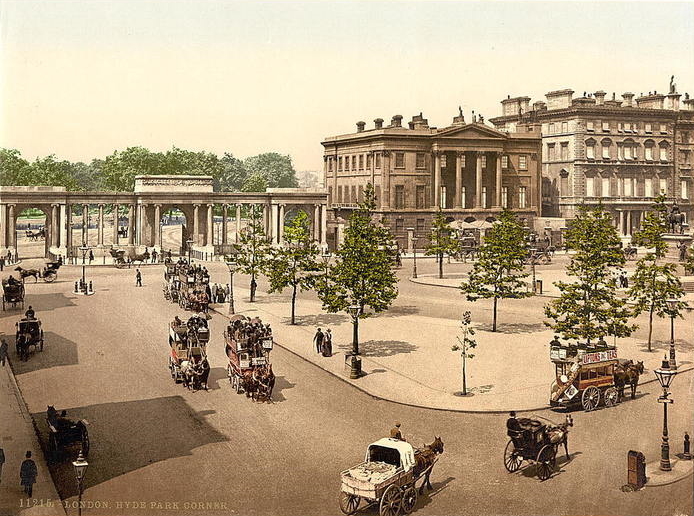
Hyde Park Corner
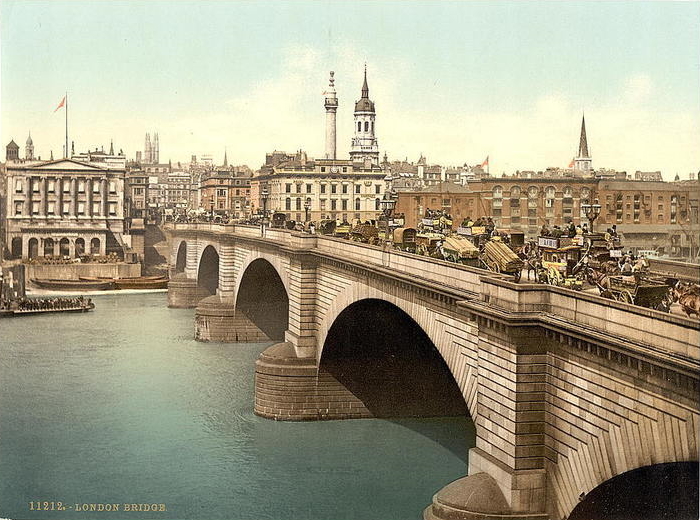
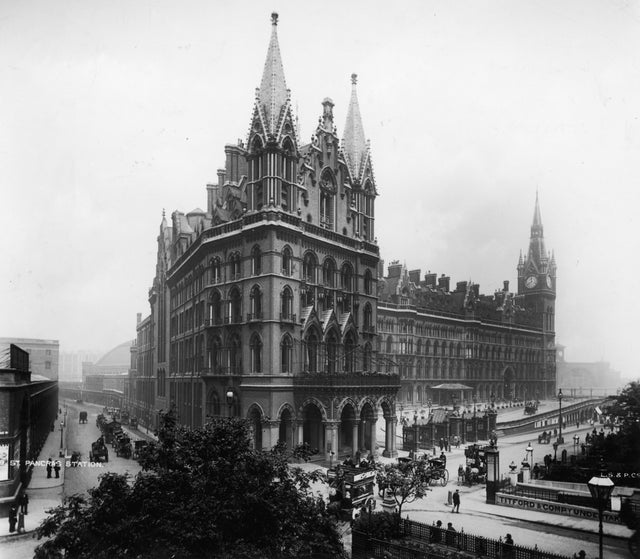
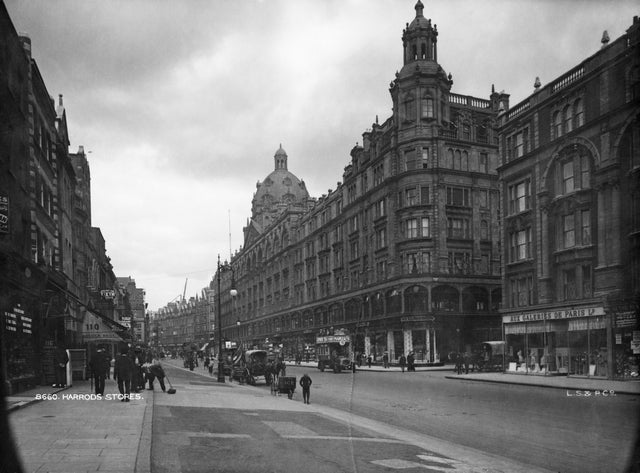
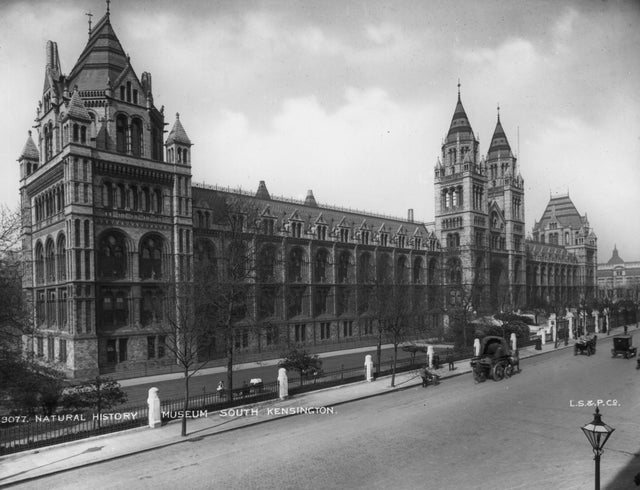
The Natural History Museum
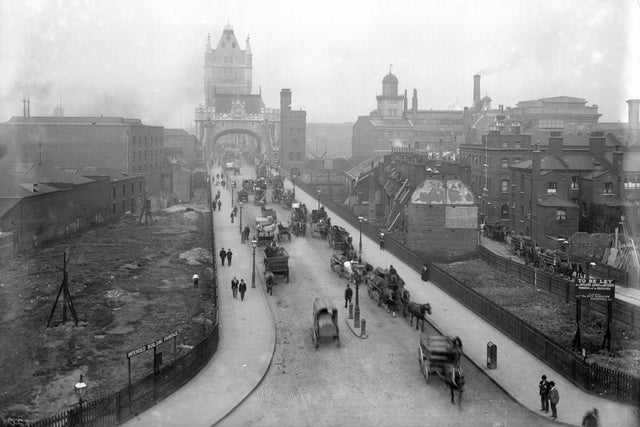
The approach to London's Tower Bridge
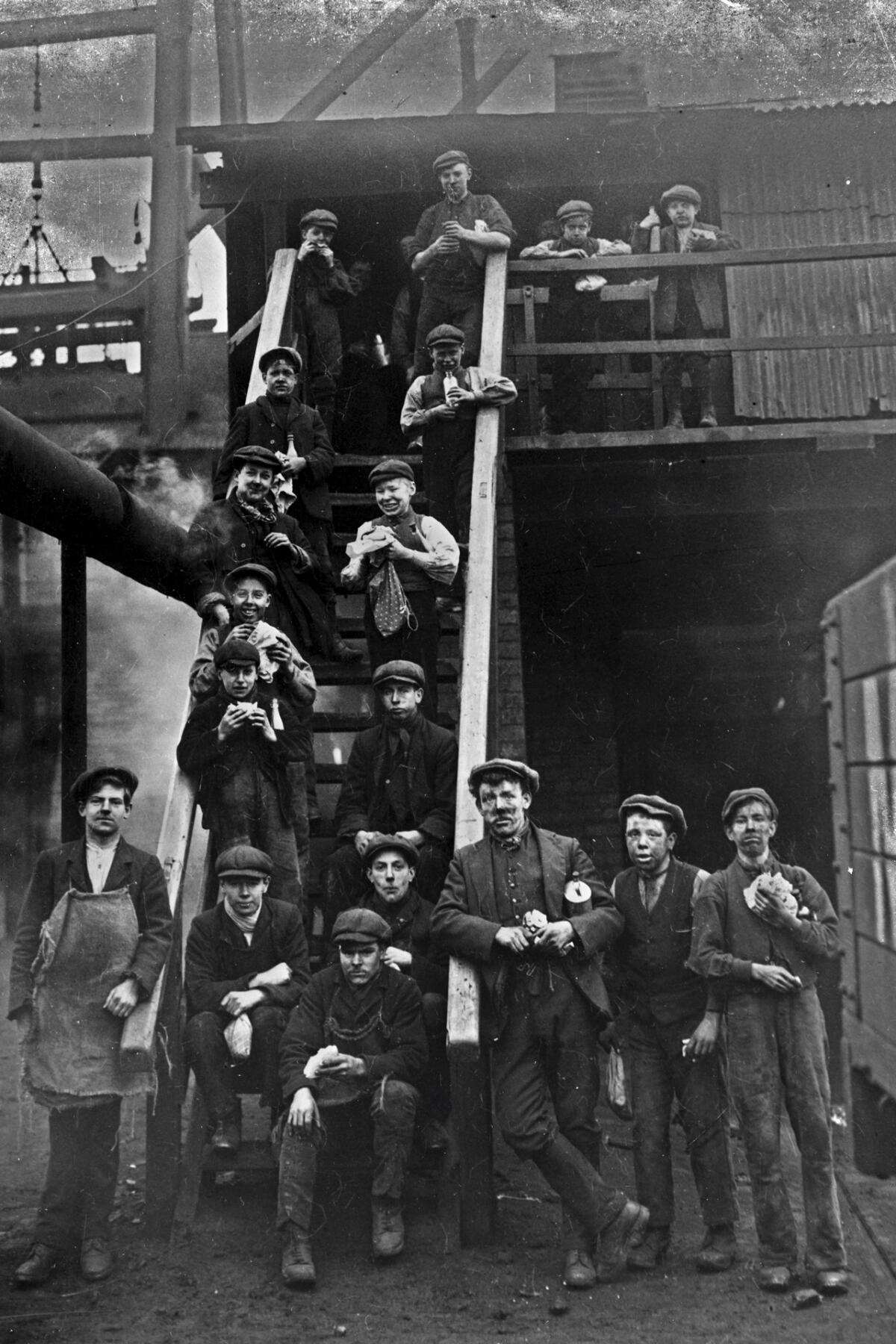

Go on to the next section: France



